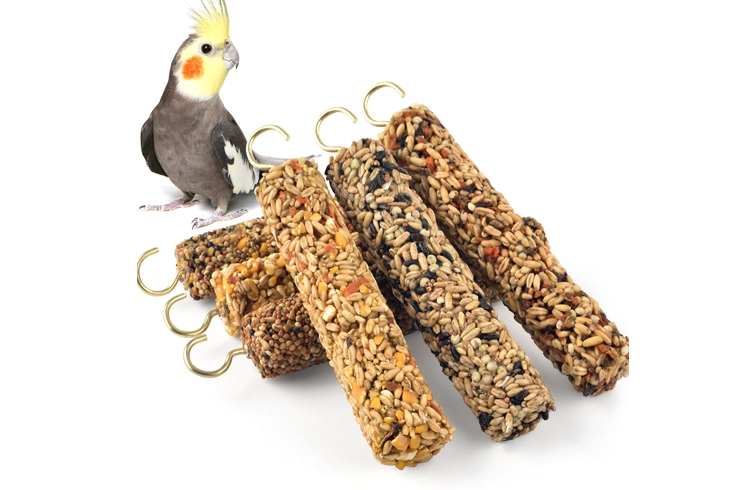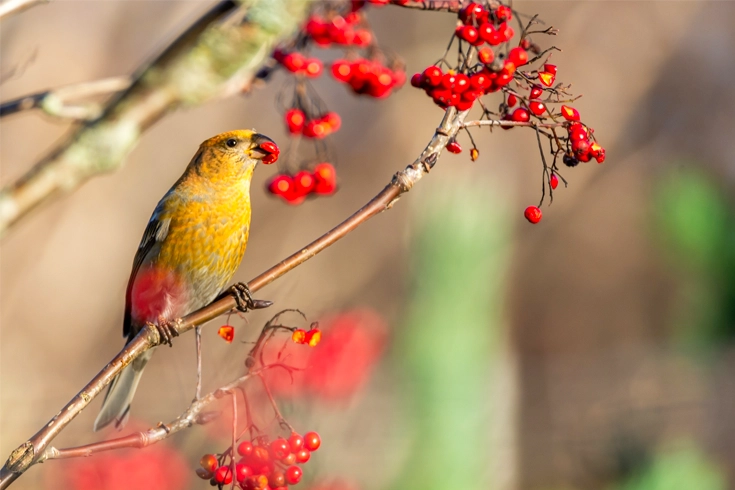
The 10 Do’s and Don’ts of Bird Feeding | A Helpful Guide
Providing food to birds is the most interesting thing that can benefit both birds and humans simultaneously. However, it’s not simply about spreading breadcrumbs in your backyard. It takes a lot of effort to attract birds. To attract birds to your backyard and keep them happy and healthy, follow some practical tips while avoiding wrongdoing.
Knowing where to start with all the information can be challenging if you are new to feed bird and looking to attract wild birds to your garden. Even if you consider yourself an expert, mistakes could still occur! So, Pet Life Expert has put together this simple list of bird feeding do’s and don’ts to keep your feathered friends happy and healthy, so they keep coming back!
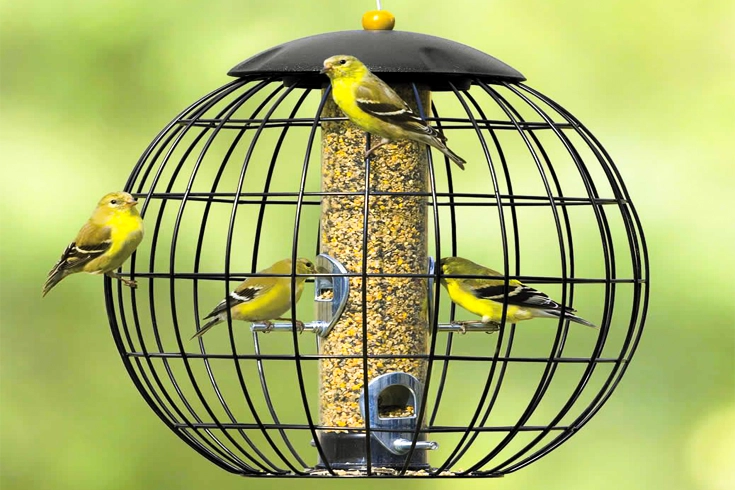
Benefits Of Bird Feeding
Feeding birds can be beneficial for a number of reasons for both birds and humans. It helps mankind and the ecosystem while ensuring a healthy diet, lifestyle, and environment. For birds, it helps with migration during harsh weather conditions and scarcity period. For humans, feeding birds can be a connection with nature, education improvement, and contribution to science projects of citizen.
Helps In Survival
Bird feeders provide birds survival aid to survive during migration, food scarcity, and harsh winters, particularly when there’s food scarcity.
Enhance Bird Population
With consistent food source, birds’ population can specifically increase in your backyard, garden, and in your nearby area.
Improves Observation
It offers a way to learn about different species at different times of the year, getting idea of different birds’ nature, food, and behaviors.
Mental Health
Feeding birds can positively impact mental health, per a recent study. Birds feeding helps relieving stress because it can be a relaxing and enjoyable experience.

Low Impact Hobby
Giving food to birds is a peaceful hobby with no negative environmental impact rather it gives you sense of calmness and connection.
Personal Experience
It serves as the most personal experience with wildlife, as opposed to owning your own pet. Consider a few essential dos and don’ts to attract and keep beautiful birds healthy. Now, let’s move on to the essentials of feeding birds.
Some Dos of Bird Feeding
If you want your birds to keep coming back to you, here are some of the dos and tips to attract birds to your backyard.
Do Choose the Right Feeders
Hopper Feeders
These are adaptable and excellent for drawing different birds, such as sparrows and cardinals. Hopper feeders prevent hulls and scattered seeds effectively.
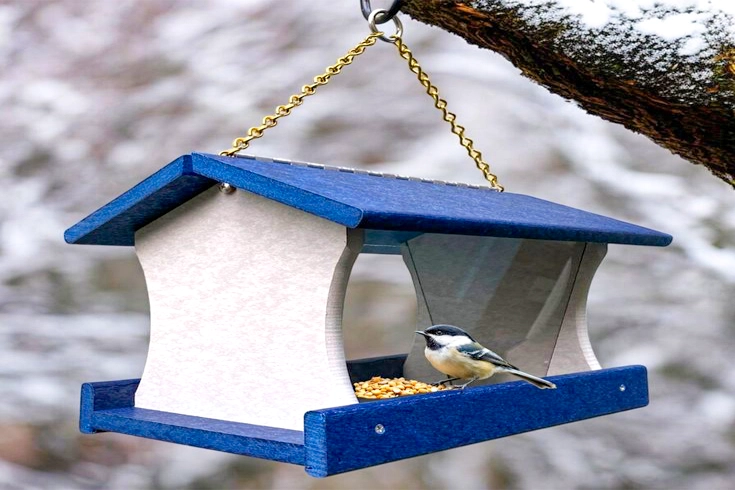
Tube Feeders
These feeders keep food accessible and fresh, making them ideal for little birds like finches. Tube feeders are the best solution to attract variety of birds, prevent waste, and keeping seeds dry.
Do Offer a Variety of Foods
Seeds and Nuts
For many species, black-oil sunflower seeds are the favorite choice. Feeding peanuts and Nyjer seeds can also attract specific birds to your backyard.
Suet and Mealworms
During the colder months, you can give some high-energy foods like suet and mealworms, ensuring they get a nutritional diet.
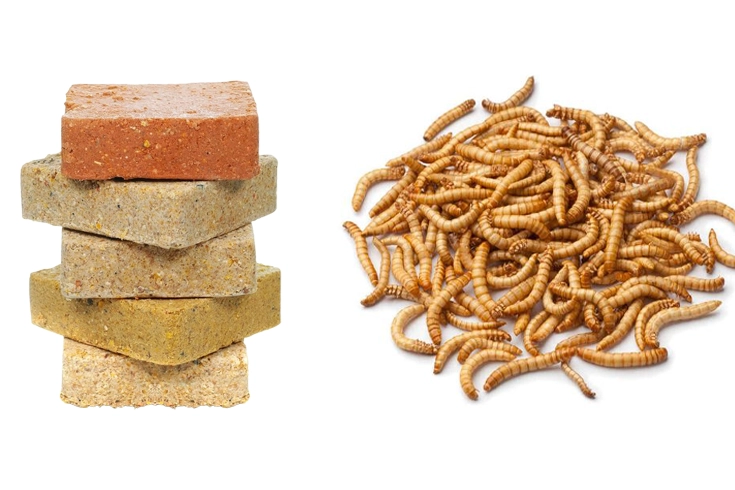
Do Provide Fresh & Clean Water
For Drinking
Never let their drinking feeder empty, and make sure the water temperature is moderated per ongoing season or climatic conditions.
For Bathing
In addition to drinking, clean water is used for birdbaths. Also, you can install a shallow dish that can keep them hydrated.
Do Keep the Feeders Clean
Have Regular Checkups
It is necessary to look occasionally if the food-serving feeders are in good condition. Check for the signs of dirt and dust.
Clean the Feeders
A regular cleaning routine is a must, so to avoid bacteria and making your birds sick, it is advised to clean dirty feeders.
List of Don’ts of Bird Feeding
Serving food requires some basic needs and precautions. Let us familiarize you with the things to avoid when serving food to backyard birds.
Don’t Use Junk Food
Avoid Bread and Processed Foods
These can be harmful to birds and have minimal nutritional value, which is why they must be avoided giving to your birds.
Skip Foods with Salt or Sugar
Salt and sugar are strictly prohibited, as even a small amount of these ingredients can be toxic to your birds.
Avoid Spoiled or Moldy Food
Never feed spoiled or rotten food to your birds. It can cause serious health issues, such as a fungal infection.
Don’t Place Feeders Near Predators
Stay Away from Bushes
Make sure to install or place feeders in an open space that is easily accessible and visible to birds only.
Avoid Any Hunting Zone
Additionally, choose a clear zone where these birds can see any potential danger expected from predators.
Don’t Overfill Feeders
Controlling Food Spoilage
Fill the bird feeders with an appropriate amount of food that can fill the stomachs of expected birds coming to your backyard.
Have Proper Food Storage
Either invest in a feeder that can protect food from spoiling or being wet or store it in a proper storage box or airtight food container.
Don’t Ignore Seasonal Needs
Adjusting for Migration
It is important to modify the feeding schedules and strategy to meet the nutritional and seasonal requirements of your birds, noticing the time of the year.
Scarcity Period
Also, it is advised to keep their feeder filled, particularly in the scarcity period, so that they keep coming back to you and your yard in search of food.
Setting Up a Bird-Friendly Environment for Feeding Birds
Creating a bird-friendly backyard or garden is another exceptional scenario that must be included in the do’s of feeding birds. Here are some hacks that must be followed:
Plant Native Vegetation
Native plants offer the best shelter and natural food source, so it is best for your birds and setting up feeders.
Provide Shelter and Nesting Sites
Also, you can create safe nesting areas for birds using leaf brush piles that can be a home to different types of birds.
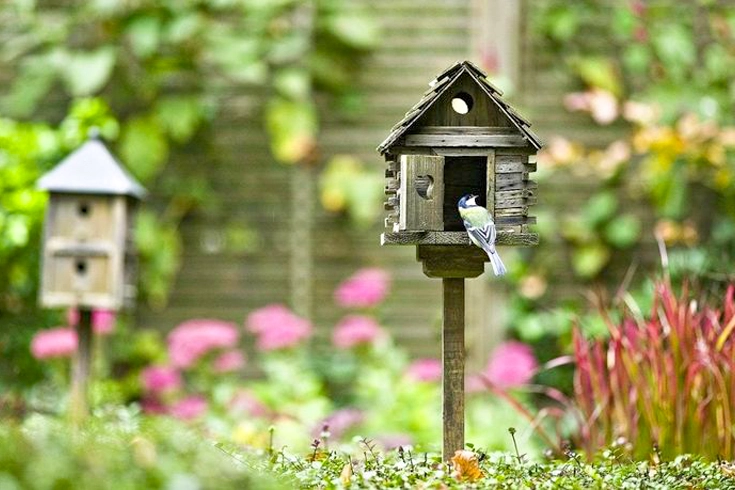
Common Mistakes to Avoid When Feeding Birds
Following just anyone can be wrong when it’s about feeding to birds. Know some common faults to avoid when giving food to birds in your backyard or garden.
Misunderstanding Bird Requirements
Research your neighborhood or area properly to determine what kind of meal is good for birds and what they prefer to eat.
Neglecting the Placement of Feeder
Ensure the proper placement of feeders, which must be adjusted in a safe and convenient place for easier accessibility for you and your birds.
Finalizing Note!
Although it requires attention to detail, feeding birds is a pleasing hobby. When it’s about feeding birds, some do’s and don’ts are clearly defined in this helpful guide. Following these guidelines, you can draw in a diverse range of birds and ensure they grow while under your care. Also, ensure you get the assistance of a vet or nutritionist at any point for the bird feeding/meal plan. Hopefully, you’ll plan the diet for your lovely birds successfully with our guide, ensuring a sustainable life for them!
FAQs | Frequently Asked Questions
Which Bird Feeder Is Recommended As a Beginner?
For most backyard birds, tube and hopper feeders are the best and most versatile choice to settle for.
Is there Any Food Which Is Harmful To Birds?
Yes! The food options that are not good for birds’ health are chocolate, bread, and processed foods that can harm their health.
What Can Be the Reason of Birds Not Visiting My Feeders?
Several factors can cause birds not to visit your feeders, such as the placement of the feeders, the food type, and any nearby predators.
Is It Possible or Right To Feed Birds All Year Round?
Of course! You can feed your birds food all year round. However, you must adjust the food schedule, quantity, and type.
What’s the Tip For Squirrels To Get Away From Bird Feeders?
The best tip for preventing squirrels from landing on your feeders is to invest in squirrel-proof feeders. These feeders have a weight-sensitive mechanism that keeps them away.
